
Black Leaders on Chauvin Verdict, Vanita Gupta Confirmed & More: April 21 Joint Center Roundup
The Next Steps in Tackling Anti-Blackness

Joint Center on Chauvin verdict: Following the guilty verdict of Derek Chauvin for murdering George Floyd, Joint Center President Spencer Overton released the following statement: “The graphic murder of George Floyd by law enforcement has been traumatic, and the conviction of Derek Chauvin provides some comfort in showing that accountability for marginalizing Black life is possible. But the verdict still remains out on how much longer anti-Blackness will persist in the United States. Police misconduct is not always videotaped, which is why Congress and states need to adopt reforms like the George Floyd Justice in Policing Act. Even with police accountability, systemic anti-Blackness would persist in employment, lending, housing, technology, and health care, as evidenced by extensive data on explicit and implicit bias. The Chauvin verdict is not a moment for hubris and erroneous assumptions that our nation has finally overcome racism. Instead, we need influential voices of all backgrounds—activists, corporations, philanthropists, elected officials, and others—to take concrete steps that advance systemic reforms and investments that result in flourishing Black communities and allow our nation to reach its full potential.”
The leaders of several other organizations that serve Black communities also released statements, including Color of Change, Congressional Black Caucus Chair Joyce Beatty (D-OH), Ford Foundation President Darren Walker, House Majority Whip Jim Clyburn (D-SC), Lawyers’ Committee for Civil Rights Under Law, NAACP, NAACP LDF, and the National Urban League.
Biden Administration
President Biden & Vice President Harris statements on Chauvin verdict: In a press conference, President Biden called the verdict a “step forward” but noted that “it is not enough.” President Biden called on the Senate to confirm Vanita Gupta (she was confirmed today) and Kristen Clarke, his nominees for the number three position of the Department of Justice and top position of the Civil Rights Division of the Department of Justice, respectively, and for Congress to pass the George Floyd Justice in Policing Act. Vice President Kamala Harris said “a measure of justice isn’t the same as equal justice” and noted that “we still must reform the system,” while also calling for the Senate to pass the George Floyd Justice in Policing Act.
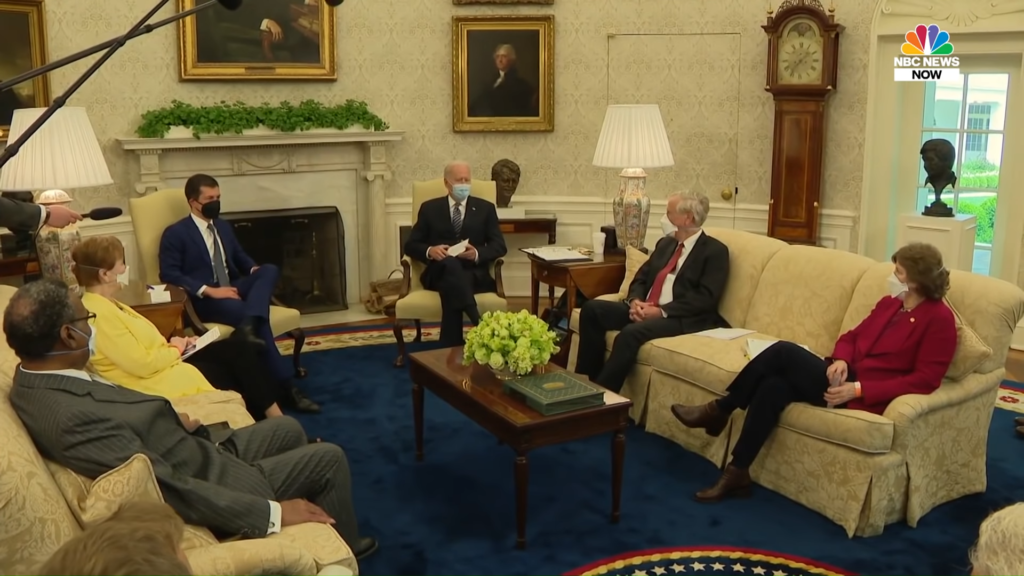
Bipartisan meeting on Biden’s infrastructure plan: Ahead of a meeting with a group of bipartisan members of Congress who are former governors or mayors to discuss his American Rescue Plan, President Biden said they would be discussing “what should be included in the package” and “how to pay for it.” The bipartisan group included Senators John Hickenlooper (D-CO), John Hoeven (R-ND), Angus King (I-ME), Mitt Romney (R-UT), and Jeanne Shaheen (D-NH), and Representatives Emanuel Cleaver (D-MO), Charlie Crist (D-FL), Carlos Giménez (R-FL), Kay Granger (R-TX), and Norma Torres (D-CA). More details on the $2.3 trillion infrastructure plan including what’s in it, and what aspects the GOP is opposing, can be found in a previous Joint Center roundup.
The Hill
A push for bipartisan support on police reform legislation: Former Congressional Black Caucus Chair Karen Bass (D-CA) works with Republicans, including Senator Tim Scott (R-SC), to pass police reform legislation that bans chokeholds, no-knock warrants, and creates a registry of officers with a history of problematic behavior. Congresswoman Bass is “optimistic” about passing a bipartisan deal in the Senate, noting Republicans “are operating in good faith.” Democrats need support from at least 10 Republicans to send the bill to President Biden.
Congresswoman Bush paves the way: Congresswoman Cori Bush (D-MO) reflects on her first weeks as“the first Black woman to represent Missouri in Congress.” So far, Congresswoman Bush has sponsored or co-sponsored nearly 40 pieces of legislation that range from raising the minimum wage to paying reparations for Black Americans. She also introduced an amendment to H.R.1., the For The People Act, which would restore voting rights for people currently incarcerated in state and federal prisons. While it did not pass the House, Congresswoman Bush continues to apply pressure in Congress and use her position to “step up and do something.”
DC statehood is important to Black Americans: On Tuesday, the White House announced support for a House bill granting statehood to Washington, DC, stating it “would provide residents of the District with long overdue full representation in Congress.”Forty-six percent of residents in the District are Black, and statehood would give residents full rights of citizenship and representation in Congress, and increase the possibility of African American representation in the U.S. Senate. Democrats need the support of at least 10 Republican senators to “advance a DC statehood bill without getting rid of the 60-vote filibuster.”
CBC offers condolences after Indianapolis mass shooting: The Congressional Black Caucus Chair Joyce Beatty is“deeply saddened” by the eight people killed in the Indianapolis mass shooting. Congresswoman Beatty states the CBC “remains steadfast in its commitment” to reducing gun violence.
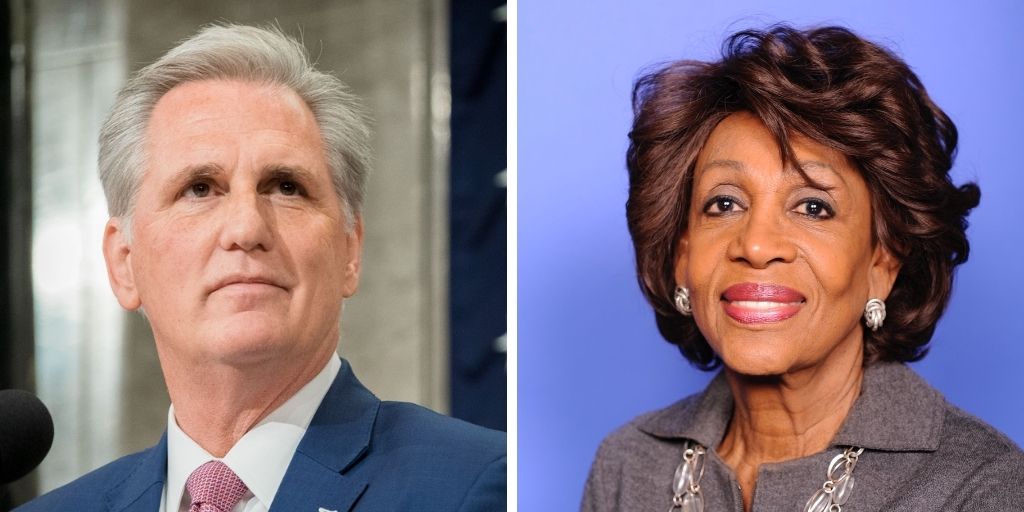
Falsely equating Maxine Waters with Donald Trump: House Minority Leader Kevin McCarthy (R-CA) said he is going to introduce a resolution to censure House Financial Services Committee Chair Maxine Waters (D-CA) for comments she made while attending a protest in Brooklyn Center, Minnesota after the police killed Daunte Wright in the city. “We’ve got to stay on the street, and we’ve got to get more active. We’ve got to get more confrontational. We’ve got to make sure that they know that we mean business,” she said. Waters has since told The Grio that when she said “more confrontational” she is talking about “confronting the justice system, confronting the policing that’s going on, I’m talking about speaking up. I’m talking about legislation. I’m talking about elected officials doing what needs to be done to control their budgets and to pass legislation.” Many have pointed out the false equivalency between McCarthy’s claims on the statements of Waters statement (which did not lead to widespread violence), and former President Trump’s rhetoric which led to the January 6 attack on Capitol Hill.
EBONY Black America Day: Congresswoman Sheila Jackson Lee (D-TX) declares April 20 as EBONY Black America Day to celebrate “African-American culture, history, and legacy” and the release of the brand’s new book, EBONY: Covering Black America.
Appointments
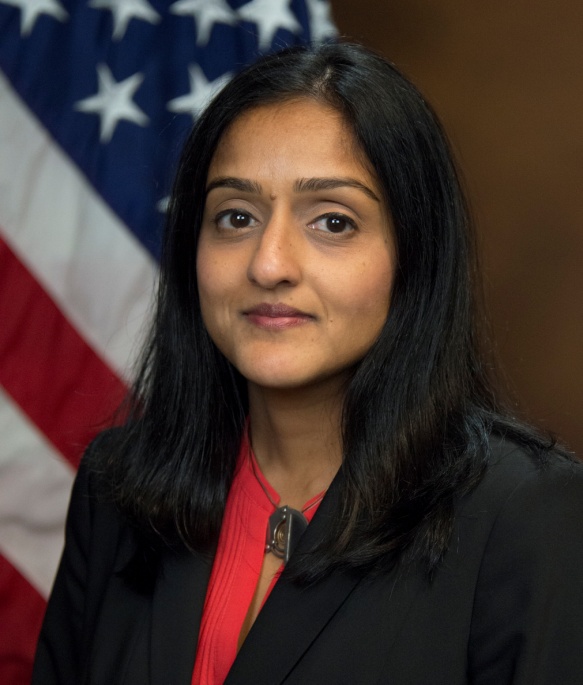
Senate confirms Vanita Gupta: With a 51-49 vote, the Senate confirmed Vanita Gupta as the Associate Attorney General, the number three position at the U.S. Department of Justice (DOJ). Ms. Gupta served as president and chief executive officer of the Leadership Conference on Civil and Human Rights and as the head of the Civil Rights Division at the DOJ under the Obama Administration. With the confirmation, Ms. Gupta is the first woman of color and the first civil rights leader to hold this position. Ms. Gupta spoke on voting rights in Black communities during the pandemic at this Joint Center event last April, and the Joint Center has supported her confirmation.
Lack of Black financial regulators continues: Nearly a year after releasing a report on the small percentage of Black financial regulators, Georgetown Law Professor Chris Brummer shared additional data during a keynote speech commemorating Black History Month at the U.S. Securities and Exchange Commission (SEC). The new data shows that only 1.55 percent of all financial regulatory leaders are Black. As The Regulatory Review notes, “in times of economic distress financial regulators often help decide who receives taxpayer-backed financial assistance” and “financial regulatory agencies create the rules for the U.S. financial system and can determine how and whether to address the racial wealth and income inequality gaps.” The Joint Center’s Black Talent initiative has repeatedly emphasized the importance of adequate Black representation in key economic positions, and has put forward several Black candidates for economic positions like CFTC Chair, FTC Chair, FCC Chair, Financial Markets Assistant Treasury Secretary, Commerce for International Trade Under Secretary, FHFA Director, and the Federal Reserve Board.
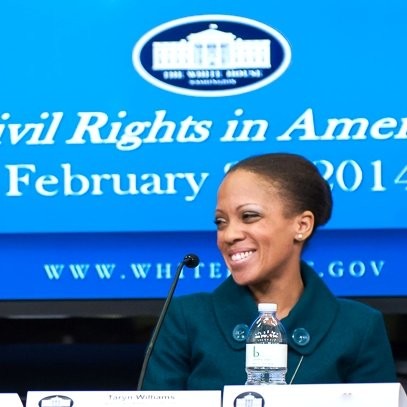
Biden appoints Taryn Mackenzie Williams as the Assistant Secretary of Disability and Employment Policy at the Department of Labor. Ms. Williams is currently the managing director for the Poverty to Prosperity Program at the Center for American Progress. She previously served in the Office of Disability Employment Policy (ODEP) at the Department of Labor.
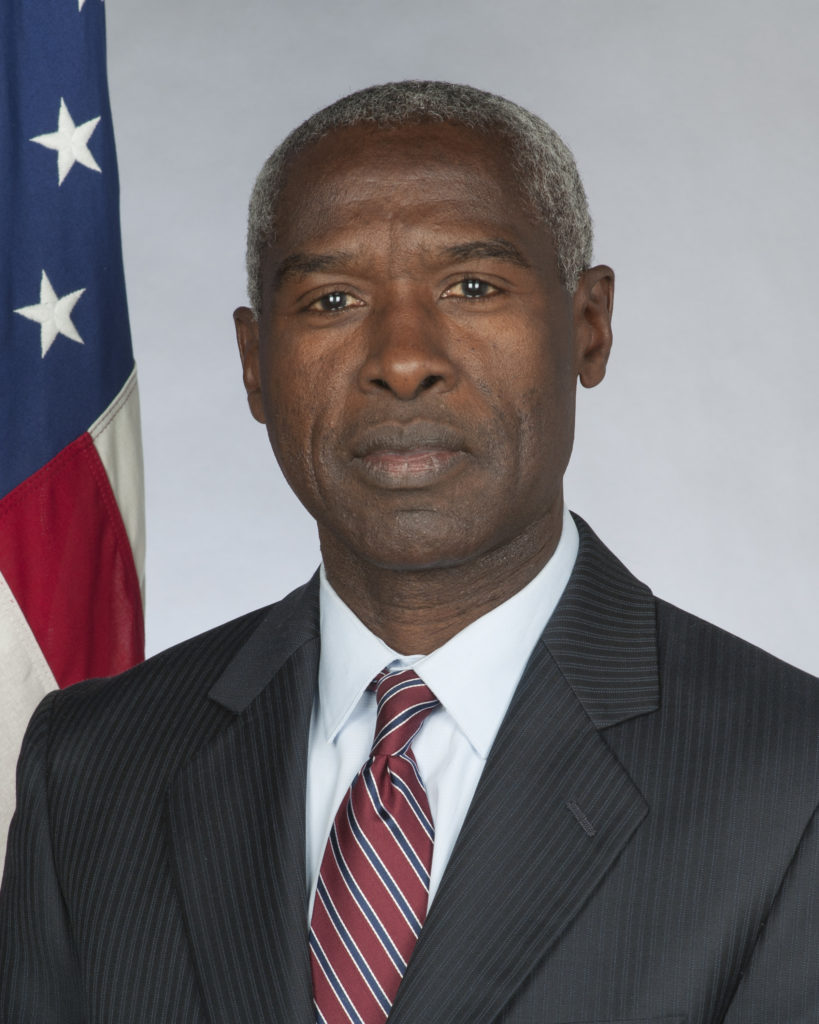
Biden nominates Tulinabo S. Mushingi as Ambassador to the Republic of Angola and the Democratic Republic of São Tomé and Príncipe. Mr. Mushingi is a career member of the Senior Foreign Service, currently serving as the U.S. Ambassador to Senegal and the Republic of Guinea-Bissau. He has previously served as the U.S. Ambassador to Burkina Faso and as the Deputy Chief of Mission of the U.S. Embassy in Addis Ababa, Ethiopia.
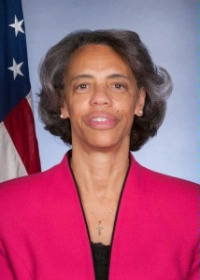
Biden nominates Marcia Stephens Bloom Bernicat for Director General of the Foreign Service and the Chair of the Board of Foreign Service. Ms. Bernicat is a career member of the Senior Foreign Service, currently serving as the Senior Official for Economic Growth, Energy and the Environment and as the Acting Assistant Secretary for the Bureau of Oceans, International Environmental and Scientific Affairs of the Department of State. She previously served as the U.S. Ambassador to Bangladesh, U.S. Ambassador to Senegal and Guinea Bissau, and the Deputy Assistant Secretary in the Bureau of Human Resources at the Department of State.
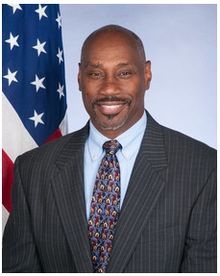
Biden nominates Gentry O. Smith for Assistant Secretary of State for Diplomatic Security. Mr. Smith is a former career member of the Foreign Service, where he served as the Director of the Office of Foreign Missions, the Deputy Assistant Secretary for Countermeasures in the Bureau of Diplomatic Security, and the Director of Physical Security Programs in the Bureau of Diplomatic Security at the Department of State. He currently leads The Gentry Group, LLC, a security consulting firm.
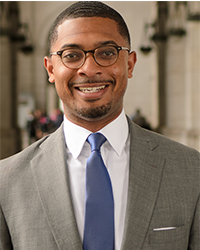
Biden nominates Christopher Coes for Assistant Secretary for Transportation Policy at the Department of Transportation. Mr. Coes is currently serving as the Acting Assistant Secretary for Transportation Policy. Prior to joining the administration, he served as the Vice President for Land Use and Development at Smart Growth America.
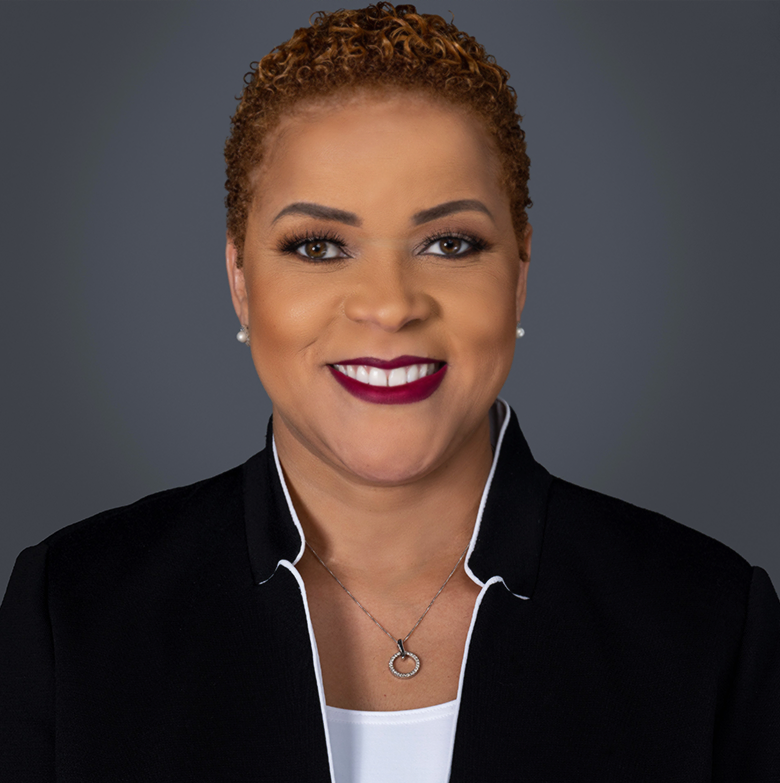
Biden nominates Kimberly C. Lewis for the Board of Directors of the Tennessee Valley Authority. Ms. Lewis is currently the Chief Executive Officer and the Co-Founder of PROJECTXYZ, Inc., a minority-owned, woman-owned small business. She previously served as the Board Chair of the Huntsville/Madison Chamber of Commerce, she was the first African American woman appointed in the position.
Economic Policy
Jobless numbers decline: Initial unemployment claims dropped to 576,000 for the week ending April 10, falling below the pre-pandemic record of 695,000.
How we talk about racial disparities matters: The narrative of COVID-19 exacerbating racial disparities fails to account for the ways that structural features of the U.S. economy narrow the options for Black workers and their families, argues the Economic Policy Institute. Proposed solutions include raising the federal minimum wage given that Black workers are more likely to work at the current minimum wage of $7.25 per hour, and they would also be more likely to receive a raise should the minimum wage be increased to $15 per hour.
Ensuring an inclusive recovery: To help Black and Latina/o families financially recover from the pandemic, federal and state policies must measure long-term outcomes, include communities historically excluded, and enhance communities’ ability to adapt to changing situations, the Urban Institute argues.

Missing: Black economists: Federal Reserve officials acknowledged how the lack of Black economists in the field skews policy decisions. Black students earned only 2.8 percent of economics PhDs in 2019, and Latina/o students earned only 5.8 percent.
“Black women best”: Janelle Jones, chief economist at the Department of Labor, proposes using Black women’s progress as a gauge for the overall health of the economy, NPR reports. Black women did not recover from the Great Recession until 2018, and when the economy was booming, Black unemployment rates were still double those of whites.
“Go big and go simple”: Sen. Elizabeth Warren (D-MA) recommends canceling up to $50,000 in student loan debt. Student loans are widening the Black-white wealth gap, and other measures to reduce the debt have been ineffective, cites MarketWatch.
Tech Policy
App store fairness: The Senate Judiciary Subcommittee on Competition Policy, Antitrust and Consumer Rights held a hearing on April 21 on competition issues in app stores. The Subcommittee is examining concerns from app developers over the cost, distribution, and availability of mobile applications. The Joint Center released a report in June 2019, titled Policies to Help Black & Latino Businesses Use Mobile Apps to Grow, that provides an introduction to policymakers on how Black and Latino entrepreneurs can use apps to grow their businesses.
“Lifeline” needs a lifeline: Sen. Dick Durbin (D-IL) and Rep. Sean Patrick Maloney (D-NY) introduced a bill to increase broadband access for low-income households in urban and rural areas by increasing enrollment in the FCC’s Lifeline program that subsidizes telephone and broadband services. Only 26 percent of eligible households participate in the program. Pew Research Center estimates that 44 percent of households with incomes under $35,000 lack broadband compared to only 13 percent of those with incomes of $50,000 or above, showing that household income is a strong predictor for broadband adoption and access.
Speed up rural broadband: Rep. Antonio Delgado (D-NY) reintroduced the Broadband Speed Act, which would require internet service providers to report accurate, yearly speed data to the Federal Communications Commission. The legislation aims to provide broadband service at affordable prices for rural Americans. Rural areas tend to have slower internet speeds than other regions of the country.
Broadband equity push: Civil rights groups push for broadband access in Black communities to create a more inclusive digital economy. The National Urban League and Color of Change call for restructuring the FCC’s Lifeline program and establishing a federal Office of Digital Equity.
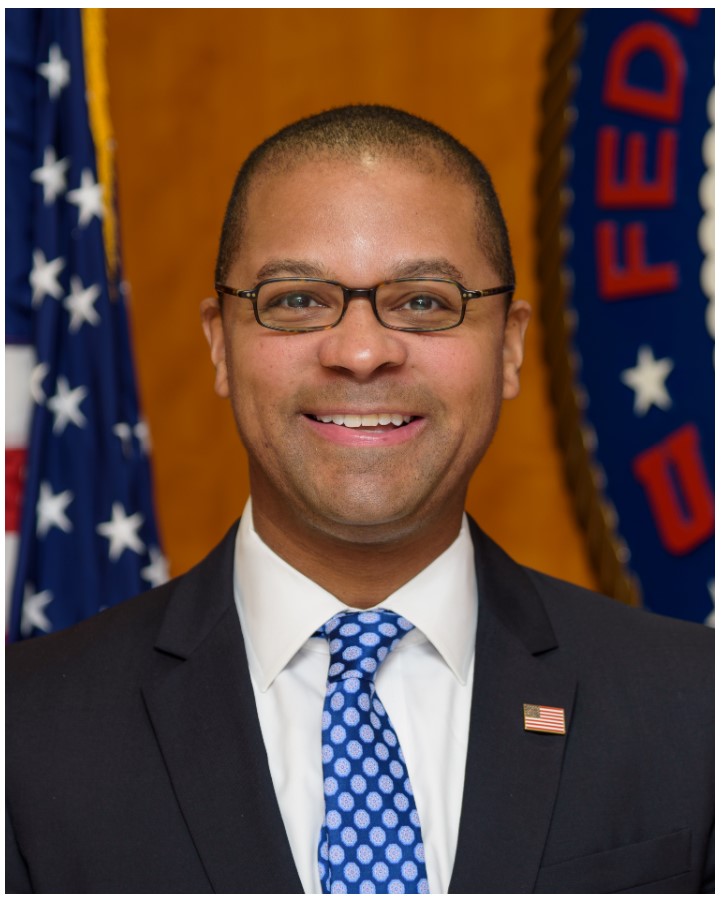
Ground to a halt: The FCC remains in a 2-2 deadlock on major policy issues as it waits for President Biden to nominate a fifth commissioner. Biden has resisted calls from advocacy groups and more than 100,000 petitioners to quickly fill the slot or name a permanent FCC chairperson. In January 2021, Joint Center President Spencer Overton recommended FCC Commissioner Geoffrey Starks as Chair of the FCC.
Money for telehealth: Round 2 of the FCC’s Telehealth Program opens on April 29, with a new applications portal for the $249 million in funding to support health care providers and patients. Broadband connectivity provides telehealth options to communities that lack local resources and services.
A stronger FTC: Sen. Maria Cantwell (D-WA) held a hearing on strengthening the power of the Federal Trade Commission’s consumer protection authority. Topics included the FTC’s efforts to fight fraud during the pandemic, including its new civil penalty authority for COVID-related scams.
Digital dark patterns get airing: The FTC is seeking public comment for an April 29 workshop on the use of digital “dark patterns,” a category of deceptive user interface designs on websites and apps. The workshop will discuss the harm dark patterns pose to consumers and strategies to counter them.
Black women (not) in AI: A new playbook outlines how to fight the mistreatment and abuse of Black women in the field of artificial intelligence following Google’s firing of its Ethical AI team co-lead, Timnit Gebru, in December 2020. The playbook identifies five steps in the cycle of abuse, including the dismissal and discrediting of Black women’s contributions.
Twitter transparency: In efforts to be more transparent, Twitter announced it will publicly share how race and politics shape its algorithms, including gender and racial bias in its image-cropping algorithm and an assessment of fairness and equity of timeline recommendations across racial subgroups.
Virtual stop and frisk: Police departments should stop using social media for surveillance, including creating fake online profiles and accounts, argue leaders from SAFElab at Columbia University, a nonprofit focused on the intersection of technology and democracy. Active surveillance of Black and Brown communities online does little to stop crime while criminalizing Black youth, they argue.
Digital privacy law muddle: The leader of a consumer privacy advocacy group says that landmark consumer privacy legislation in California is unlikely to be replicated in federal law. The laws give Californians the right to know which data tech companies are collecting from them, the right to stop that data from being sold, and the right to sue tech companies that fail to protect consumers’ personal data. Advocates argue that the tech industry is trying to pass weak state privacy laws with the goal to preempt stronger protections.
Future of Work & Learning
Job quality must improve: The post-pandemic economic recovery depends on the quality, not just the quantity, of new job opportunities, the Aspen Institute, Corporation for a Skilled Workforce, National Fund for Workforce Solutions, and Atlanta Fed Center for Workforce and Economic Opportunity argue in a new report. Low-quality jobs have a greater impact on Black and other communities of color, contributing to disparities in income and wealth.
Advocates push for more job training: The Biden administration should match infrastructure investments with investments in job training, argues the National Skills Coalition. Commerce Secretary Gina Raimondo promised that such investments would follow, with an eye to equity for those most impacted by the pandemic’s fallout, including Black people and other workers of color.

Congress tries again on job training: A bipartisan group of senators and representatives reintroduced legislation on worker training for “good-paying” infrastructure jobs in fields such as transportation, energy, and construction. According to one study, nearly half of the 15 million jobs estimated to be created by a $1.5 trillion investment in infrastructure would require skilled training beyond high school.
Parents’ dreams, meet reality: Parents’ aspirations for their high school children do not align with the postsecondary pathways available to them, a new national survey finds. Black parents, especially those who prefer training programs for their children over four-year colleges, were more likely to report barriers to gaining access, guidance, and information on options.
COVID-19
Take a page from community health centers: Community health centers are serving people of color at higher rates than overall vaccination efforts, a new analysis finds, though the centers are still a relatively small share of facilities administering vaccines nationally. The majority served at the health centers were people of color, with Black people composing 13 percent of those receiving first doses and 12 percent of second doses.
Education is forever changed: COVID-19 has permanently changed American education, for better and worse. It set the stage for innovation, including virtual learning, but it also exposed disparities, including lack of access to the internet and food insecurity, that disproportionately affect Black, Brown, and low-income students and families.
Alarming birth disparities worsen: The global pandemic has underscored the importance of Black maternal health as racial disparities in birth outcomes widened. Black women are reporting issues ranging from limited in-person prenatal care to increased economic anxiety. Among Black women over age 30, pregnancy-related deaths are four to five times higher than for their white counterparts.
COVID isn’t going away: Experts say that the COVID-19 vaccination alone is not enough to end the pandemic, which will require herd immunity and establishing control of the virus over the long term.
Political Studies
Georgia officials lament voting changes: Local election officials in Georgia take issue with many of the changes in the state’s new voting legislation, concerned that it will make state elections more expensive and difficult to execute. The new law has been criticized as suppressing the votes of Black and other marginalized communities.
Women fighting the good fight: Forbes included Rep. Terri Sewell (D-AL) among women over age 50 fighting the battle against voter suppression. Rep. Sewell joined Sen. Patrick Leahy (D-VT) to introduce the John Lewis Voting Rights Advancement Act in 2019.
Revolutionary women: Voting rights champion Stacey Abrams joins a long line, dating back to the American Revolution, of Black female activists fighting for voting rights, an op-ed in the Washington Post points out. Past efforts by Black women ranged from escaping slavery (one-third of fugitives were women during the Revolution) to petitioning the courts for freedom and organizing protests.
Movement Building
Black Futures Lab highlights the economic priorities respondents from their recent report National Opinion Survey of Black People in the US described as most pertinent for the Biden administration to achieve.
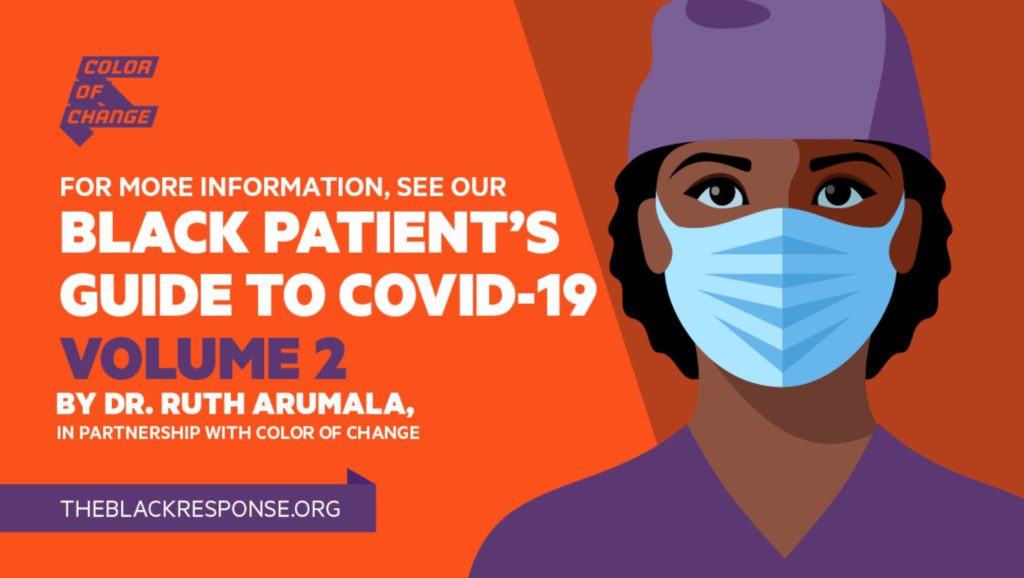
Color of Change releases the second volume of their Black Patients Guide that details information on resources for combatting COVID-19, including vaccine distribution and treatment.
Kimberly Godwin is announced as the next President of ABC News, making her the “first Black woman to lead a major broadcast news division.”
Events
Upcoming events include “Creators of Color in the Online Economy” (Congressional Black Caucus Foundation, April 22); “Biden’s $3 Trillion Infrastructure Plan” (REMI, April 22); “The Past, Present, and Future of the New Markets Tax Credit Program” (Urban Institute, April 28); “How Might States’ Responses to the Pandemic Affect Safety Net Programs?” (Urban Institute, April 29); “Criminal justice reform in America: Policing and pretrial detention” (Brookings Institution, April 30); “Beyond Survival: Small Businesses After COVID-19” (Politico, May 4); “The Benefits and Value of Becoming a Certified LGBT or Disabled-Owned Business” (AARP, May 11).
Last week, events were held by Brookings Institution, CLASP, Knight Foundation, and the Urban Institute.
Podcasts
Quality, Affordable Housing is a Basic Right featuring HUD Secretary Marcia Fudge (Clyburn Chronicles)
Career opportunities within reach, no degree required (WorkingNation)
Black Men in Medicine: Meeting the Challenge (AAMC)
The Joint Center thanks the Annie E. Casey Foundation, the Boulé Foundation, the Democracy Fund, Toyota Motor North America, Inc., UPS, and the Walmart Foundation for additional support that has allowed us to do some of our COVID-19 and Black Communities work.
To receive the Joint Center’s emails, sign-up here.

